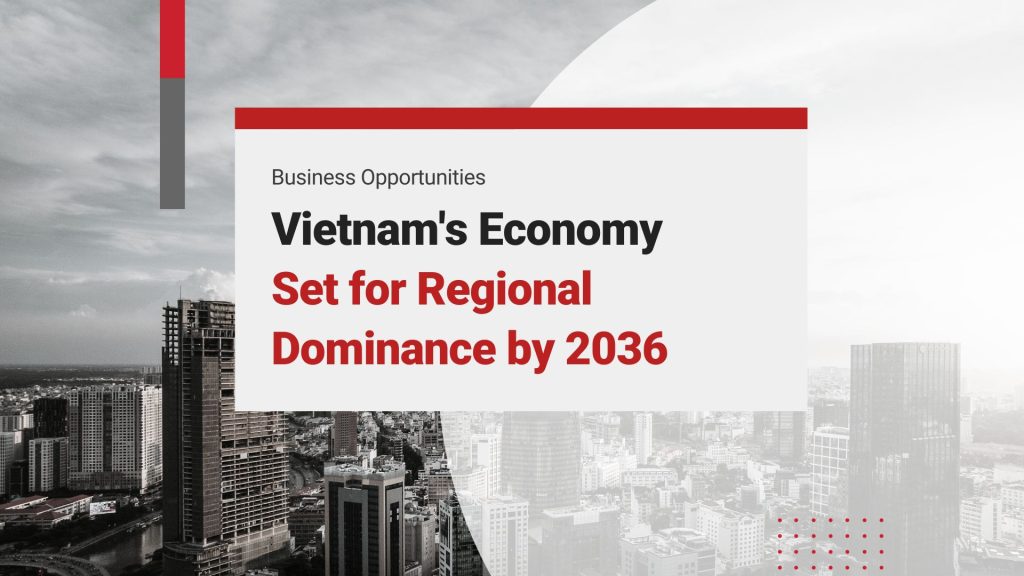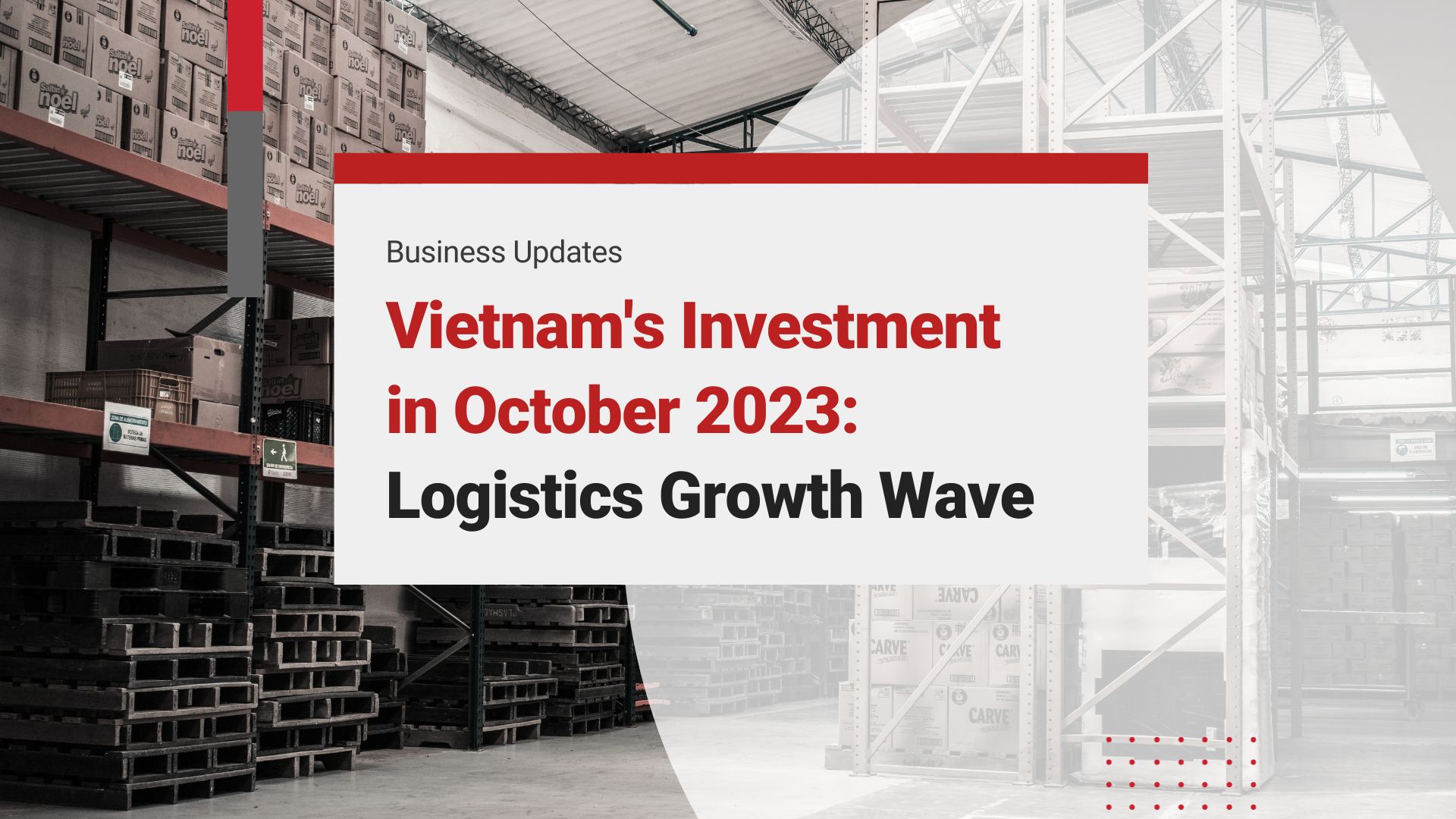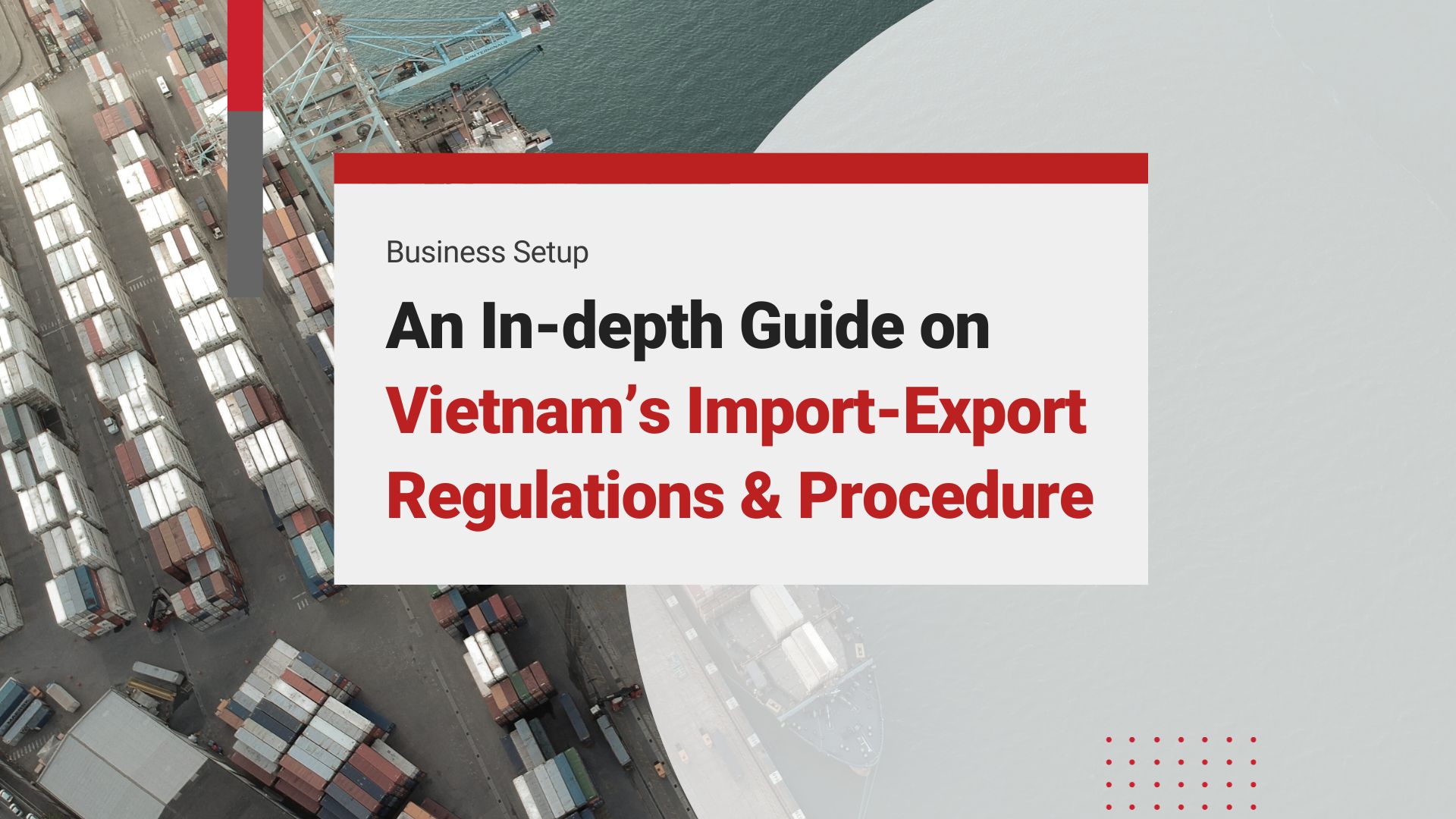According to the latest World Bank predictions, Vietnam’s economy is on track to reach new economic milestones within Southeast Asia by 2036. Vietnam’s GDP growth is estimated to increase by 5.5% in 2022, up from 2.6% in 2016. As the COVID-19 pandemic is being contained effectively domestically and abroad, the forecast predicts that Vietnam’s services sector will slowly bounce back. The manufacturing industry will gain from the continued demand from China, Europe, and the United States.
Investing in Vietnam? Check out InCorp’s Full Incorporation Services in Vietnam
The same paper states that for Vietnam to meet its goals in terms of trade, it must address three significant economic challenges:
- Facilitating eco-friendly trade
- Promoting green FDI (foreign direct investment)
- Developing carbon-free industrial zones
Vietnam’s Economy to Surpass Singapore by 2036
Vietnam’s Economic Growth and Development Strategy
According to the World Economic League Table 2022 published by the Centre for Economics and Business Research (CEBR), Vietnam’s economy will surpass Indonesia’s in Southeast Asia by 2036. According to purchasing power parity, Vietnam’s GDP per person in 2021 will be US$11,608. The nation has achieved exceptional economic growth and middle-class status by taking advantage of positive global trends.
The current five-year plan, which covers 2021 to 2025 and is intended to ensure the smooth continuation of the current economic development model, is the basis for economic estimates. Manufacturing will be supported as part of the growth strategy by joining global supply chains, developing trade alliances, and diversifying exports. Vietnam’s economic prospects have also been improved over the long term due to the country’s expanding middle class, a demonstrably healthier business environment, improved access to markets, and the shift in supply chains to countries with lower costs.
Vietnam’s Journey to Becoming a High-Income Nation
According to Vietnam Investment Review (VIR), the Vietnamese government wants to become a high-income nation by 2045. To reach this milestone, the nation has to grow at a pace of about 5% per capita on average per year. Vietnam’s current five-year plan predicts that the nation will expand at an average annual rate of 6.5% during the following ten years to achieve its objectives.
Despite encouraging economic patterns, it has several significant obstacles on the road to becoming a high-income country. It must significantly improve the performance of its policy implementation as the world’s trade diminishes and its population ages. These factors will disproportionately impact the sectors impacted by automated processes and climate change.
Additionally, the regulatory framework must be regularly updated and amended, focusing on high-tech industries and the interconnection of economic zones across the nation to support FDI activities in Vietnam.
Read Related: Vietnam’s Industrial Zones: A Key Player in Global Manufacturing
Vietnam’s Ascending Global and Regional Economic Position: Projections until 2036
Vietnam’s standing in the World Economic League Table is anticipated to improve significantly between 2021 and 2036, according to CEBR. It is anticipated to move up from 41st to 20th by 2036. Only Indonesia and Malaysia were ranked higher than Vietnam in Southeast Asia.
According to the IMF (International Monetary Fund), Vietnam will rank third in SEA in terms of GDP by 2025 with US$571.12 billion, trailing Indonesia (US$1.63 trillion) and Thailand (US$632.45 billion). It will surpass Malaysia (US$556 billion), the Philippines (US$523.53 billion), and Singapore (US$496.81 billion). Also, it is worth mentioning that Vietnam’s economy is predicted to surpass Thailand’s after 2028.
Vietnam will come in third in the Southeast Asian region in terms of GDP by 2025, behind Thailand (US$632.45 billion) and Indonesia (US$1.63 trillion), according to the IMF (International Monetary Fund). It will surpass the economies of Singapore (US$496.71 billion), Malaysia (US$556 billion), and the Philippines (US$523.53 billion). It’s also important to note that after 2028, Vietnam’s economy is expected to overtake Thailand’s.
Vietnam’s economy is also anticipated to surpass that of Switzerland, Belgium, Sweden, Poland, and Australia by 2036, according to CEBR.
An Aggressive Push for Foreign Investment
By 2021 to 2030, Vietnam intends to entice up to 50% of Fortune 500 businesses, according to Deputy Prime Minister Phan Binh Minh. By 2030, it plans to grow registered investment capital by 70-75 percent from Asia, including nations like India, Singapore, China, and Thailand, as well as from Europe, Russia, and the US.
The strategy aims to accomplish the following:
- Streamlined and fair business environment
- Enhanced economic efficiency and competitiveness
- Developing the country’s industrial infrastructure and finding new markets for Vietnamese products made with foreign partners
- Utilizing many free trade agreements to the fullest extent possible
- Innovating and cultivating a culture of creativity
Vietnam is embarking on a pivotal phase in its industrialization process by establishing robust supporting industries, fostering a seamless transfer of technology between multinational corporations (MNCs) and domestic firms. This strategy, strongly backed by the government, aims to fuel national growth through enhanced cooperation in science and technology. Additionally, the country is prioritizing the careful monitoring of foreign direct investments, mergers, and acquisitions, reflecting a commitment to protecting its national security and interests. This integrated approach signifies Vietnam’s strategic vision in evolving its industrial landscape.
Challenges Remain – the Middle-income Trap
Rapid economic expansion and overcoming “the middle-income trap” are Vietnam’s key priorities. Vietnam has employed the “dual economy” concept to achieve this goal, prioritizing specific geographic regions and economic sectors that may be more developed than the rest of the economy.
These prioritized regions and industries have been expected to drive the growth process to achieve overall prosperity. The dual economy strategy has prioritized industrialization and urbanization during the last 20 years. As a result, several locations have drawn more significant investments and have seen double-digit development. Some businesses have better access to resources, giving them a competitive edge. Examples include state-owned corporations and big, private organizations with many social connections.
However, socioeconomic development in Vietnam has been unequal; as a result, certain regions are far more developed and dynamic than others, while others remain poor and inactive. Natural resource extraction promotes economic progress but has also led to environmental issues.
There are growing differences in income and social welfare between rural and urban communities and between other geographic regions. Economic restructuring could be faster due to how unevenly and individually industry, services, and agriculture are developing.
The Central Ideology Theoretical Council (CITC) will create a new economic growth ideology model for Vietnam for the ten years between 2021 and 2030. Vietnam can finish industrialization and urbanization and escape the middle-income trap with the new model. A model of an “inclusive Development Economy” that prioritizes investment in industries with comparative advantages in each region of the nation has been put forth by the CITC and is known as a “target investment policy.”
Beginning in early 2021, the effective implementation of this program set the stage for the subsequent ten years of national economic growth.
Read More: Top 10 Challenges of Doing Business in Vietnam
We made the most detailed step-by-step guide for Company Incorporation in Vietnam for investors, now available as an interactive checklist:

About Us
InCorp Vietnam is a leading provider of global market entry services. We are part of InCorp group, a regional leader in corporate solutions, that encompasses 8 countries in Asia-Pacific, headquartered in Singapore. With over 1,100 legal experts serving over 15,000 Corporate Clients across the region, our expertise speaks for itself. We provide transparent legal consulting, setup, and advice based on local requirements to make your business perfectly fit into the market with healthy growth.
Don’t take our word for it. Read some .
Verified by
Ian Comandao
Business Consulting Manager at InCorp Vietnam
Ian is a sales and marketing professional who has worked over 15 years in key accounts management.






